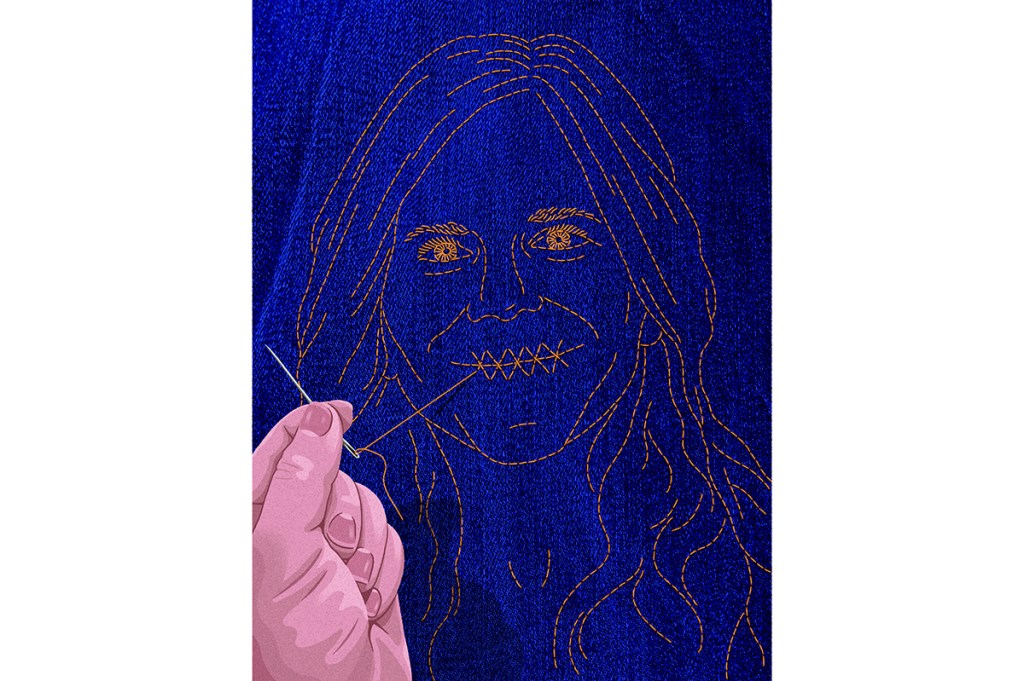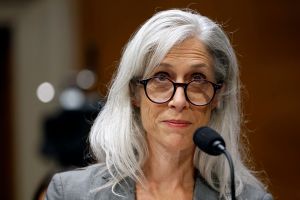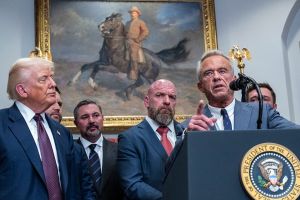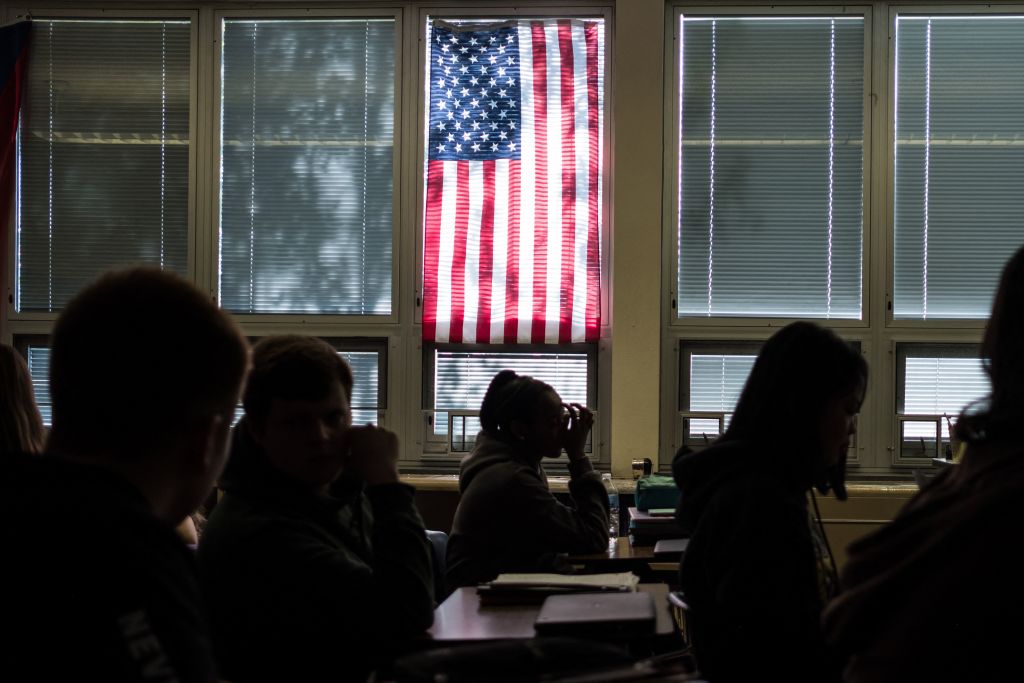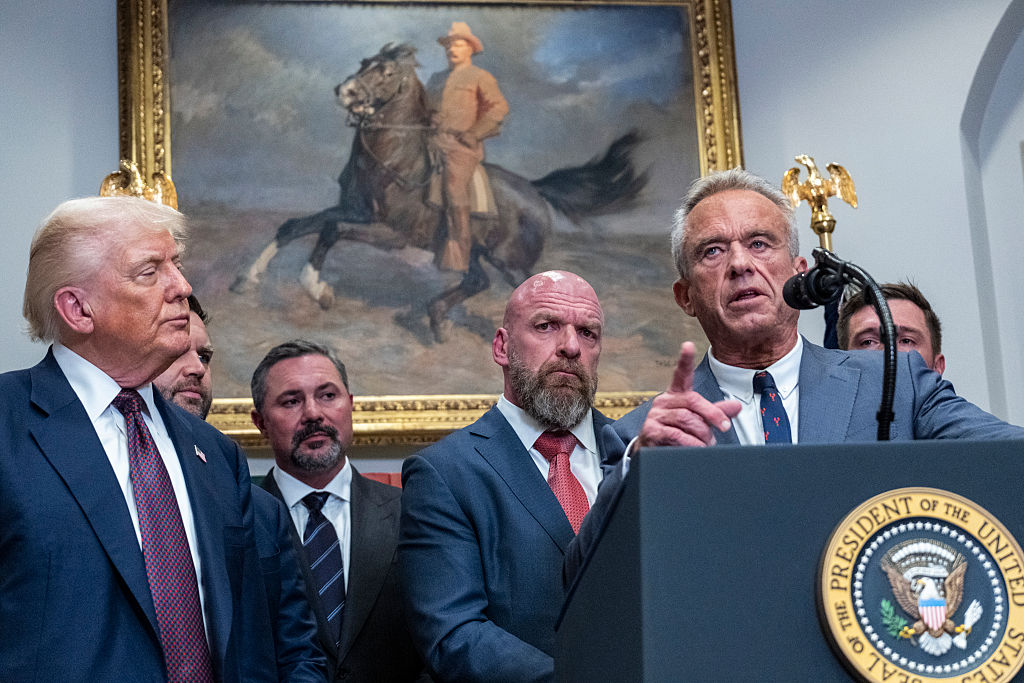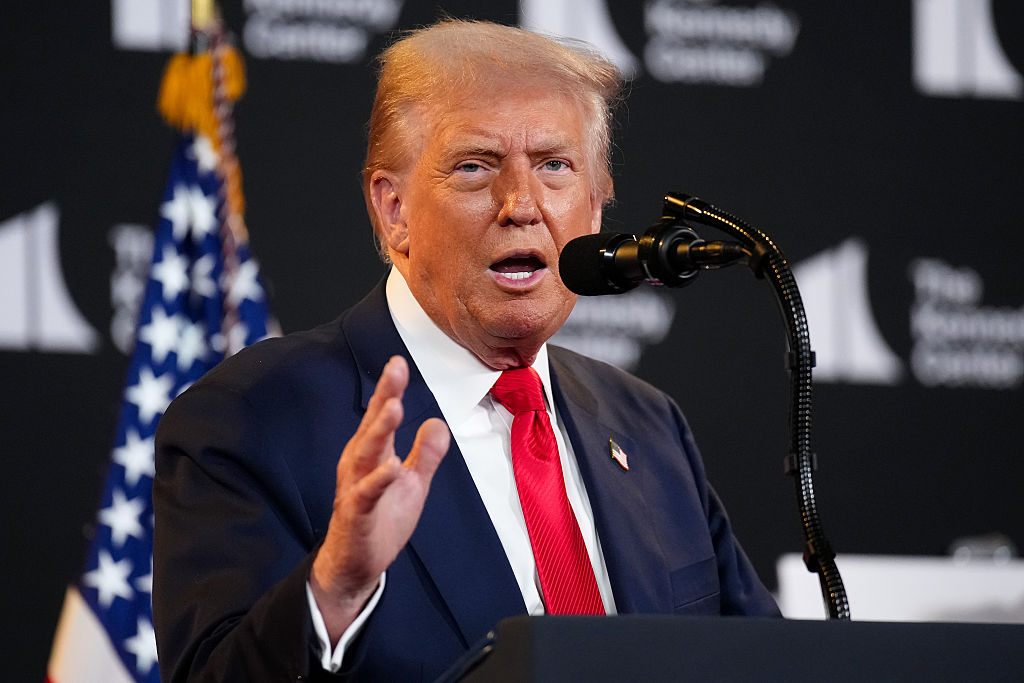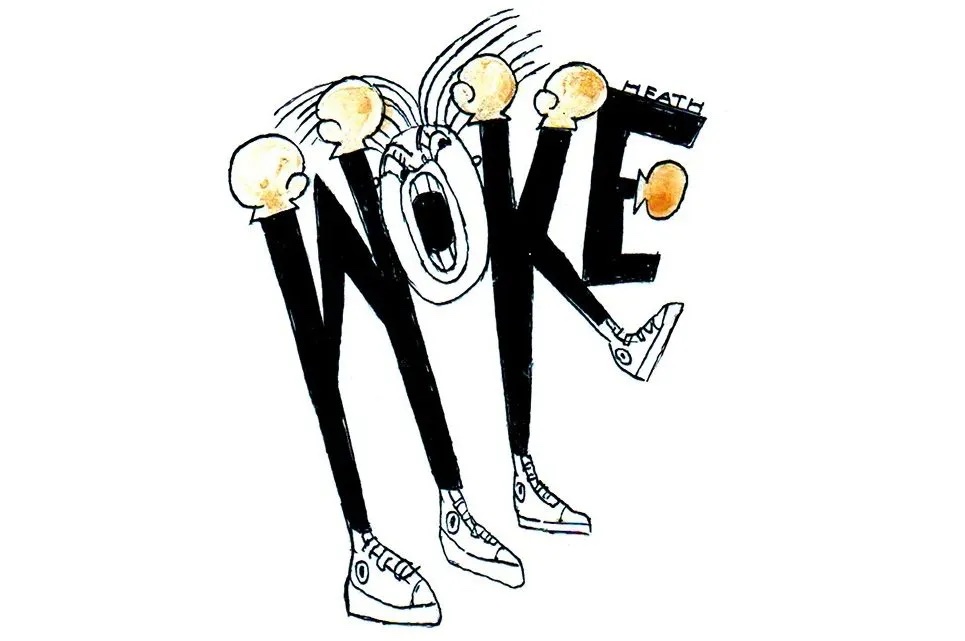In February 2022 I walked away from my job as the first female global brand president of Levi’s after close to twenty-three years at the company. I’d given the better part of my adult life to Levi’s because of the product itself — I do love my 501s. (I have always preferred the button-fly on my jeans, rather than the zipper.)
But while I may have chosen to work there in the beginning because of the product, I stayed because of the company culture. I believed in their mantras: “profits through principles,” “harder right over easier wrong,” “use your voice.” These refrains were rooted in the company’s heritage of rugged individualism, corporate philanthropy and populist inclusiveness. I was nothing short of heartbroken to find out that in practice these phrases were just empty buzzwords, merely shibboleths of woke capitalism. They have nothing to do with the company’s current guiding values, which are anything but inclusive or principled.
Of course, woke capitalism wasn’t only happening at Levi’s. In recent years, in the wake of George Floyd’s murder, almost every corner of American business has become frantic to prove its do-gooder, anti-racist status. Immediately following Floyd’s death, internal memos and pronouncements on Instagram went out from companies across America. All featured the same buzzwords: social justice, anti-racism, equity, inclusion. All promised to do their part in defeating racism and all forms of discrimination. Only the foolhardy would dare challenge such brave stands. Any suggestion of doubt was defined as bigotry. And stories of cancellation were rampant.
My company, Levi’s, was among the wokest of the woke. And I was in on it. Until I dared to be one of the few foolhardy enough to challenge received wisdom.
Of course, woke capitalism is more than just one thing. For some, it is capitalism’s road to redemption, elevating business beyond mere greed into the realm of noble altruism. These true believers are mostly young and hyperactive on social media. For them, woke-ism is a quasi-religion — and the workplace is where they seek to proselytize.
Even when these woke employees are laid off, they don’t realize they are being used to further leadership’s deceptive message. In reality, these unsuspecting employees are often laid off primarily so that the rich can stay rich and keep getting richer. But the message broadcast to the world is that it was a “tough call” intended to maintain employment for as many as possible. The employees and consumers who believe the “we really care” message are being manipulated and taken advantage of in a woke capitalist game.
For a great many others, us oldsters in the upper echelons of American business leadership, woke capitalism is a ploy. It is a pose, a communications strategy, a way for corporate executives to feel like philanthropic heroes and be celebrated as such, all while getting rich in the same way they always have. Only this time, they are selling a side of righteousness and social justice activism to go with their T-shirts, instead of offering a mere assurance that insecure teenagers will look cool and feel confident on the first day of school. In their cynical way, these leaders are more relentlessly destructive than the most zealous social justice warriors, for they are even more willing to cancel anyone who challenges the narrative of companies as do-gooders.
Which is to say, woke capitalism is above all a lie. There is no justice in it. Only protection of intergenerational wealth for the already wealthy and enforced obedience and conformity of thought among employees to protect the lie.
Having come from the progressive side of the aisle, I was caught short and alarmed by the “progressive” savagery in policing their own, by the unforgiving drive to purge the unworthy and heretical. For those on the side that supposedly celebrates diversity to trample anyone who veers from top-down talking points — to hold any such dissent as profane — seems a transparent and obvious trespass against their own stated values.
At Levi’s, these “values” of individualism, corporate philanthropy and inclusion were supposedly baked into the company’s DNA.
It all started at Levi’s inception in San Francisco back in 1853. Levi Strauss himself donated a portion of his first profits to a local orphanage. And in the 1900s, Levi’s applied their values internally, seeking to take care of employees by doing the right thing. During World War Two, when the company hired black sewing-machine operators and laborers in its California factories, it integrated the workforce. And then, in the early 1960s, the company opened a desegregated factory in Blackstone, Virginia, despite local opposition. In 1992, the company offered same-sex partner benefits, before any other large company had even seriously considered such a thing.
The company took to heart the phrase “charity starts at home.” And Levi’s never sought to take rights away from any of its employees. They just provided equal rights to all employees. Giving a gay employee healthcare benefits leveled the playing field. Healthcare was not taken away from those in traditional heterosexual marriages. And, in fact, partner benefits were extended to straight, unmarried couples. It was a win-win.
The other important point is that this approach of ensuring equality and fairness for employees never detracted from the company’s purpose: to deliver the best possible product, at a fair price, in order to maximize profits. As we used to say at Levi’s, our mission was to clothe the world.
But by 2020, this principled approach of equitable treatment of employees had morphed into a way of being and operating that can only be described as the wokest imaginable version of woke capitalism. The “profits through principles” ideology had oozed into every aspect of our brand image-creation, even though it was now completely untrue.
Over time the company’s egalitarian principles for all employees mutated into woke capitalism: it happened slowly, then all at once. I participated. I contributed. I didn’t see it. And by the time I did, it was too late for me.
The mob had taken over. And our mission to “clothe the world” had been usurped by employees demanding we fight to change the world instead.
This seemed patently absurd to me. And impossible. We could change the lives of some of our employees by treating them with fairness. We could provide high quality jeans that lasted a lifetime to our fans, who included everyone from blue-state minivan moms to cowboys and those insecure teenagers who just wanted to look cool on the first day of school.
But the idea that one little jean maker should be responsible for pulling off political change seemed not only ridiculous, but destined to fail. It would limit the size and growth of our business. It would also, eventually, detract from our focus enough to dissipate the thing that people really wanted from us: pants. And the business would suffer, and perhaps even go under.
But not only was I in the minority, I was the only leader who seemed to feel this way. Leadership caved time and time again to the demands of a woke mob of employees.
The company didn’t believe that Levi’s was for everyone anymore. We only wanted the woke to work at Levi’s, and judging by our public stances, we only wanted the woke to buy Levi’s.
As someone still committed to traditional liberal values like free speech and due process — those I thought the left was committed to — I felt as if I’d been swindled and not so much betrayed as treated like an idiot. I worked at Levi’s longer than I’ve ever done anything else, in part because I believed in these things we said. But they were fabrications. And so, my time was over.
What marked the beginning of my end at Levi’s? I was outspoken about the policies affecting children during the pandemic: closed schools, closed playgrounds, the masking of toddlers. I’d spoken out since the very beginning — March 2020 — in defense of maintaining as much normalcy as possible for kids and ensuring that they were not carrying an undue burden on behalf of society. I expressed serious concerns, backed with data, about the age stratification of risk from Covid (people over seventy were at 3,000 times greater risk of death as children) and how that should inform public policy. Restrictions that unfairly burdened low-risk children were driving learning loss, an increasing educational gap between the haves and have-nots, and a mental health crisis among teens due to intense isolation.
All these unintended consequences were a direct result of long-term public-school closures and other onerous restrictions on kids. I pointed out that harm would be done — and then the harm actually happened. I said it again and again, with increasing passion, on social media, in op-eds, on the local news and then on Fox (this is when things really went south).
I was hoping to help bring some sense to these cruel and abusive policies that were hurting disadvantaged kids, those most likely to be in public schools, the most.
My boss at Levi’s and my peers all begged me to just stop, even as their own kids returned to in-person schooling at elite private institutions while public-school kids remained stranded at home.
Only gradually did it dawn on me that our campaign slogan “Use Your Voice” did not apply to me.
I was challenging all-knowing public health authorities — the same public health authorities who kept playgrounds closed in San Francisco, where Levi’s is headquartered and where I lived — for the better part of a year. The ones who closed beaches and disallowed surfing, filled skate ramps with sand to make them unusable, boarded up basketball rims to prevent kids from shooting hoops. Those all-knowing public health authorities.
For saying we should focus resources on the most vulnerable — the elderly at the top of that list — while letting low-risk children have their lives, I was deemed a granny-killer. In saying that closing hiking trails and gyms was a bad idea, and that perhaps public health authorities should consider a “get healthy” outreach effort since obesity is a primary risk factor for poor Covid outcomes, I was attacking the overweight. I was also denying science. The “science” behind the mandatory masking of diapered toddlers, and the bleaching of groceries, and plexiglass barriers and shuttered schools.
Though Levi’s prides itself on being unafraid of taking controversial stands, standing up for kids was apparently a bridge too far. Employees in the company called me every name they could think of: racist, ableist, eugenicist, fatphobe, anti-trans. These sentiments were reiterated and given force by anonymous social media trolls outside the company as well.
And eventually, in January 2022, I was told that there would be no place for me going forward. Despite my years of service, my stellar work performance, the rapid recovery of the business post-lockdowns (led by me, in large part, as the brand president) and my unofficial role as an embodiment of the ethos of the company — an inspiring leader and “culture carrier” — I no longer represented the company’s “values.” My views were out of sync with Levi’s political ideology. And I was deemed a risk to the company’s reputation.
I chose to quit rather than accept Levi’s framing of my exit. I wanted to leave on my own terms, without $1 million in hush money and a nondisclosure agreement to ensure my silence. I felt the aggressive silencing of debate on matters of public concern, the viewpoint discrimination within supposed bastions of liberalism like San Francisco and the general obliteration of a culture of free speech were too important and needed to be discussed. In fact, alarms needed to be sounded. The most important thing to me was to leave not only with my integrity intact, but my voice as well. So that’s what I did.
I know it’s not such a big deal that one well-paid executive got pushed out of a company for spouting off on Twitter. It is a big deal, however, why I got pushed out.
I was pushed out because I stood up for kids during Covid, in direct violation of the progressive mainstream’s manufactured narrative. I said kids should be in school when Democratic leaders, the media, the Centers for Disease Control, local public health officials and teachers’ unions all said schools must stay closed and that anyone who wanted them open was a very bad person.
They were wrong. I was right.
The wrong ones contrived consensus by silencing doctors who offered another perspective and “normies” like me who just knew how to read and interpret data. But I dared to continue to shout about it all, even after I was warned to stop. I failed to heed their warnings, again and again. And so, I was a person unworthy of employment.
I am loyal to principles, not party. I am against hypocrisy. I think that there are a lot of people who feel the same way, in fact, that we are the majority. I hope speaking out will make it less scary and more urgent for other reasonable people to say what needs to be said. To call out things that are false, even — especially — when a most vocal and punitive minority says otherwise. I hope it will inspire them to say what they know to be true but haven’t dared to say. Yet.
This article is an edited excerpt from Levi’s Unbuttoned: The Woke Mob Took My Job but Gave Me My Voice. This article was originally published in The Spectator’s December 2022 World edition.



